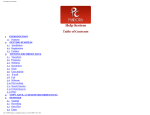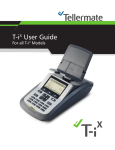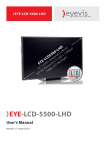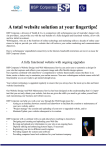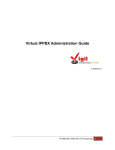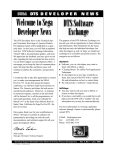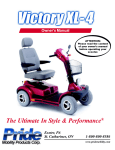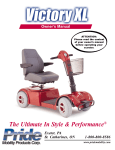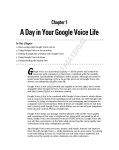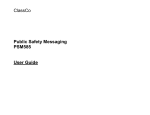Download Email Brain
Transcript
1 Contents 1. EmailBrain Guide to eMarketing………………………………………………………………………….….….3 2. How to Get the Most From eMarketing ………………………………………………………………….……3 1. Creating Your Customer Database ……………………………..…...................5 1.1 Collecting Email Addresses via Your Website……………………………………………………………...7 1.2 Collecting Email Addresses from Customers……………………………………………………………....7 1.3 Collecting Email Addresses from Potential New Customers……………………………………….…...7 1.4 Collecting Email Addresses - the Direct Approach…………………………………………………..…...7 2. Creating Your Email Promotions…………........................................………8 2.1 Limited Offers……………………………………………………………………………………………………..9 2.2 Last Minute Offers……………………………………………………………………………………….…..….9 2.3 Email Newsletters………………………………………………………………………………………….……10 2.4 Product Updates & Information…………………………………………………………………………...…11 2.5 Staff Newsletters ……………………………………………………………......................................... 11 2.6 Invitations …………………………………………………………………………………………………..……11 2.7 After Sales Emails…………………………………………………………………………………………….…12 2.8 Personal Greetings……………………………………………………………...……………………...………12 3. Tips for Creating Quality Email Campaigns………...............................13 3.1 Make it Look Good…………………………………………………….……………………………………….13 3.2 Make it Useful and Usable……………………………………………….……………………………….….13 3.3 Make it Relevant……………………………………………….……………………………………..…….….14 3.4 Make it Personal……………………………………………….…………………….………………..……….15 3.5 Make it Sell……………………………………………….………………………………………………….….15 3.6 Test Before You Send……………………………………………….…………………………………….……16 4. Company Information……………………………………………………………….…...18 2 Successful email marketing is more than setting up a distribution list in Outlook and sending a broadcast email to all your contacts asking them to buy something from you. Successful email marketing is a strategic process that can and will: • Increase your sales • Reduce your marketing costs • Build customer loyalty 3 • Shorten your sales cycle • Generate more referrals • Save time by automating your marketing Email marketing is the most immediate, flexible and cost effective marketing tool available in business today. That’s why so many businesses are doing it. But very few of those businesses are doing it as well as they possibly could. This document has been developed to allow you to take full advantage of the power of EmailBrain, a leading email marketing, database management system. There is not one “right way” to do email marketing. But there are better ways. There are three steps to developing your email marketing program: 1. Create your customer database 2. Send your email campaigns 3. Track your results This brief guide will provide you with the essential information you need to get started with your eMarketing strategy. The right strategy for your business will depend on your marketing objectives, your target markets and the nature of your business. If at any time you need help working out what’s best for your business, please don’t hesitate to contact us. The EmailBrain team. 4 1. Creating Your Customer Database The information you collect about your customers is what allows you to tailor your promotions and customize your offers so that you get the best possible return from your eMarketing effort. What customer information you need depends on how you can use that information to tailor campaigns, to better target different groups of customers, and therefore get the best possible response from your eMarketing. Some of the information that may be useful to you includes: • Contact information (especially email) • Client status (how this customer compares with your other customers) • Lead source (where your customer first heard about you) • Demographic information (age, sex etc) • Personal information (children’s names, hobbies etc) • Personal & relationship information (notes on personal contact with the customer) • Purchase history (what they have bought and when) Why would you bother to collect such detailed information about your clients? Mostly so that you can sort your database into different groups to tailor campaigns to their specific needs. 5 Here are some examples for you to consider: Contact Information • Sort by zip code to send offers in batches to different areas • Multiple contact methods to increase the effectiveness of your campaigns (Phone, mail, and email) Client Status • Campaign targeting your least profitable customers to generate more sales from them • Special “rewards” for your most profitable customers Lead Source • Identifying best ongoing promotional strategies • Rewarding referrals Demographic Information • Campaigns targeting a male or female audience • Family offers • Targeting campaigns to different age groups Personal & Relationship Information • Notes to help you identify which campaign will be most relevant to each customer • Notes to help you avoid unnecessarily overloading customers with not relevant information • Contact history to track long term sales processes & relationship building Purchase History • Targeting users of a particular product from your range • Targeting customers who have not bought a product from your range • Scheduling re-order reminders Information equals flexibility. The more information you can collect about your customers, the more flexible, and more effective your eMarketing will be. Your next step in developing your email marketing plan is to implement systems to ensure that your database of contacts is constantly growing in a way that complies with current privacy and anti-spam legislation. The sooner you will start building your list, the sooner you will see results from your eMarketing campaigns. Following is a brief outline of some of the ways you can grow your database: 6 1.1. Collecting Email Addresses via Your Website Your website can be a lucrative source of email addresses from potential customers. You can do this in a number of ways, including email subscription forms, enquiries forms, order forms and feedback forms. 1.2 Collecting Email Addresses from Customers New and existing customers are the easiest source of email addresses for your database. You should never let a customer leave your place of business without at least asking for their email address. Depending on the nature of your business, this can either be done at the point of sale, or through in store promotions. 1.3 Collecting Email Addresses from Potential New Customers If you want to build a list of potential customers, you generally have to be a little bit more strategic, and be prepared to invest a little money to “create” your list. As a rule, people will only be willing to give you access to their inbox if there is something in it for them. Many options for collecting new contacts exist, from running small in store promotions to large scale advertising where entrants go onto your potential customers list. As an example, a resort might run a promotional campaign in a newspaper, offering the chance to go into the draw for 3-night accommodation simply by going to their website and signing up for their Accommodation Specials Newsletter. 1.4 Collecting Email Email Addresses - the Direct Approach For some businesses, the best way to build your list is to go out and ask for email addresses one at a time. This is particularly true for business-to-business (B2B) markets. Your emphasis here is on getting permission to send information through via email. This can be done over the phone (either by yourself, sales staff, a professional telemarketer, or in person). Next Steps Getting started is the most important thing, and the best place to get started is setting up your databases: 1. Create a customer database in your EmailBrain account 2. Upload all your current customer contact information 3. Start collecting contact details from all new customers Once you have the ball rolling, the next step is to design and send your email promotions. 7 2. Creating Your Email Promotions You are using email as a marketing medium because you want to increase your sales using a low cost, instant communication tool. Unfortunately, other businesses use this method as well. Your next challenge is getting through the clutter so that your emails are read by your intended audience. The single best way to be read is for your customers to want and expect to receive your communications. Different customers will find varying levels of value in your communications and it is up to you to determine what that value is. The following sections will help you identify the best content strategy for delivering the most value to your customers. Some of the most successful email content includes: • Relevant information to their needs • Special offers and discounts • Information about product developments and new services • Industry news • Specific Information to your area of expertise • Case studies and examples of work you have done with other clients Email marketing will work best for your business if you can offer something to your customers which has value to them, but does not hurt your profitability. Some examples include: • Relevant information • % Discount • Free gift • Free trial period • Buy 2 get 1 free (or other variation) • Increased/bonus rewards points • Flexible payment terms (eg 90 days no repayments interest free) • Free/discount refills • Free/discount upgrade • Free/discount audit or needs analysis • Free reports 8 Email can be used as an advertising medium, a direct marketing medium, a direct sales and loyalty tool or a combination of these. In all instances it works best when there is a direct response required or call to action. This way you can measure ROI, track responses and update customer Following is a brief outline of some different types of email marketing campaigns you may wish to use. 2.1 Limited Offers The immediacy of email allows you to get quick responses to your offers. By limiting the offer, you can enhance the speed of the response you get (and reduce the cost to your bottom line): • Only 5 available • This week only • Today only • Reply in the next 30 minutes (many on your list will get the email within minutes of you sending it) You can also use limiting criteria to help fill off-peak times in your business: • Valid only after 2 pm • Valid only before 11am • Valid Monday nights only • Offer available on weekdays/weekends only 9 2.2 Last Minute Offers Email is a fantastic tool for disposing of distressed inventory - stock that must sell quickly before it can not ever be sold. You can send an email campaign to a small sub-set of your database with a special last minute offer to clear this distressed inventory. If you change the group you send this to each time, you will avoid “training” your customers to expect these offers, and to act quickly when they do come through. Service businesses are especially well suited to this particular email strategy. Because email is instant, you can use it to fill the last remaining spots in your diary - spots that would otherwise produce no income at all. Select your free vacation 2.3 Email Newsletters Email newsletters are the ideal tool for building and maintaining long-term relationships with your clients. Whereas special offers and promotions are usually designed to drive sales quickly, email newsletters are generally used to build customer loyalty and drive sales over time. The objective of an email newsletter is to deliver worthwhile content into your customers’ inboxes. Some examples of worthwhile content include: • Case studies • Hints & tips • Advice columns • Frequently asked questions • Technical issues explained in simple terms • Expert analysis of current issues relevant to your customers 10 2.4 Product Updates & Information Email is a great way to launch new products and services to a receptive audience, or to inform existing users of new features and upgrades: • Product updates and upgrades • New models • New features • New services It is important to the success of your campaign that you stay focused on providing value to the customer, and wherever possible, give them a reason to respond: • Free test drives • Introductory offers • Promotional give-aways and/or discounts 2.5 Staff Newsletters Remember to communicate with your staff. An email newsletter sent throughout your business, regardless of how big it is, provides you with an ideal way of making sure that everyone is kept up to date on important issues such as: • Upcoming promotions (email and offline) • Important notices and announcements • Policies and procedures • Achievements and results • Staff events and activities 2.6 Invitations Holding an event? Invite your customers to attend via email, and have them register via an online form. Emailbrain can be an excellent way of keeping costs down and attendance up when organizing events such as: • Product launches • Information sessions • Seminars and workshops • Social events • Charity & fund-raising events • Special trading times • Open houses 11 • Test drives Invitations to events help create the feeling that you are a valued customer. The biggest cost with running an event is printing and mailing the invitations. Via email, that cost becomes far less of an obstacle. 2.7 After Sales Emails You can automate some (or possibly all) of your after sales service using EmailBrain. Your customers would like to know that they are not forgotten once the check has cleared, and a simple email can make a big difference. Some examples of after sales emails include: • “Thank you for your business” emails • Care and maintenance tips • Help and frequently asked questions • Post purchase satisfaction surveys 2.8 Personal Greetings There is a reason why you’ve been collecting birthday details for your customers, so you can send them a birthday e-card. EmailBrain can be used to set up various standard (personalized) emails, which you can send to small segments of your database at appropriate times: • Birthday e-cards • Reminder emails (“Just a reminder that you are due to re-order soon”) • “We haven’t seen you for a while” messages • Post purchase satisfaction surveys Next Steps You will learn more about what works for your business by conducting a few test campaigns: • Outline 2 or 3 possible campaigns you can test • Create the emails in your EmailBrain account • Send the test campaigns to a sub-set of your database • Call selected customers for feedback Once you have done this, the next step is to measure the results. For more information on how to create, edit and send your emails please refer to the EmailBrain User Manual, online tutorials or contact EmailBrain. 12 3.Tips for Creating Quality Email Campaigns Campaigns Cutting through the clutter of email is a challenging task, and one that can only be achieved by sending high quality, relevant, and valuable emails to your distribution list. In short, you have to make your contacts want to respond to your current email, and want to receive your next one. Here are some steps to ensure your emails are as effective as possible: 3.1 Make Your Newsletter Look Good Step 1 The design of your email template has a significant impact on the way in which your campaign is perceived, and the rate at which your audience will click through to your website. Some key factors to consider in your template design: • Use high quality images and graphics • Create a strong brand image with your email templates and stick to it • Don’t overload it with too much content or too many graphics • Remember that only a small part of the email is viewable in the Preview Pane of many people’s email browser - use this space for branding and to get your main message across. While EmailBrain is designed to make and create your email template quick and easy to do yourself, you should consider having a professional designer create your initial design for you. Quality graphic design is a specialized skill, and the perception created by professionally designed templates is worth the small investment. 13 3.2 Make it Useful and Usable Step 2 Stay focused on your customers when creating your campaigns because email is easy and cheap to use. Many businesses fall into the trap of sending any old junk and expecting it to work. Remember, while email is very convenient, it is also very heavily used, and very easy to dispose of. Some things to consider: • Provide content that is relevant and valuable to your customers • Use short paragraphs and lots of sub-headings • Include links to all relevant sections of your website for more information • Be specific, offer real solutions not generalizations • Proof Read: there is no quicker way to damage your credibility than with typos and misinformation • Test that all web links work and go to the correct page (broken links are embarrassing and highly unprofessional) EmailBrain allows you to add any content you want and in any way you want. This makes it even more important that you think about your customers and what they want when you are planning your campaigns. 3.3 Make it Relevant Step 3 The most important part of getting email marketing right is to get the right information to the right people. Ask yourself this question each time you plan a new campaign: “Would I be happy to receive this email”. Making your campaigns relevant is important for two reasons: 1. It will increase your response rate 2. It will increase the life-span of your email list by reducing your unsubscribe Some things to consider when planning your campaigns: • What’s in it for the customer (benefit, offer, information) • Is this useful for every customer, or specific customers? • What’s new? • Has this approach worked in the past? • How can I gather feedback about this campaign? 14 3.4 Make it Personal Step 4 Bulk email can look like junk mail, or it can look like a personal message from you to your customer. It depends on how you use it. Here’s how you can personalize your email campaigns: • Greet them by name: “Hello Robert,” • Tailor offers to the needs of different customer groups • Ask for feedback Personalizing your emails is simple with EmailBrain. It may seem like a small thing, but greeting your customers by name, and sending them information that shows you understand their needs will take a big difference to the ongoing success of your campaigns. 3.5 Make it Sell Step 5 Well that is the whole point, isn’t it? Even your relationship building emails should have an element of sell to them. This does not mean you should bombard your loyal customers with gimmicks and free steak knives. It means you should never be afraid to ask them to do business with you again, and you should do so confidently. Here are some ways you can increase the “sell” in your emails: From Line The first thing most people look at when checking their email is the “From” column. If they do not know you, there is a good chance the next button they click will be the delete button. There are three options that work: 1. The name of a person they know and trust (Account manager, sales rep etc) 2. A group they belong to (“XYZ Rewards Club”, “ABC Frequent Flyers” etc) 3. A company they trust (“DEF Accountants”, “ROI Investments” etc) Once you have chosen which approach you will take, you should stick to it so your recipients can recognize your emails, and so you have a better chance of avoiding Spam filters. 15 Subject Line If they recognize the name in the “From” column, the next thing they look at is the subject. If the subject is of little or no interest, it will be ignored or deleted. If the subject seems interesting it has a better chance of being opened and read: • Keep it short, only the first few words will be visible in many cases • Focus on the benefit to the reader • If it is a newsletter, focus on the benefits of reading the article (“Learn”,“Discover”, “Solve”) • If it is a promotional offer, focus on the benefits of buying (“Save”, “Get”,“Bonus”, “Value”) • Keep the same subject line for each issue (“DEF News”, “LKJ Monthly Update”) or keep the same title with details of the edition (“DEF News - June03”, etc) • Try using an open-ended question (“What are you doing for dinner tonight”,“What’s your favorite type of chocolate”) note: no question marks • Avoid using tricks or “bait & switch” techniques (it may work this time, but will reduce your chances of being opened next time round) Content • Use a headline that tells them what they can get by reading on • Write the text with your customer in mind • Make them an offer • Have a strong call to action • Use landing pages with database forms to capture the details of hot leads • Open and close the email with your contact information 3.6 Test Before You Send Step 6 Errors can be embarrassing at best, and damaging at worst. Always test every email before you end it. Here’s the best way to avoid embarrassing mistakes: Set up a new Database called “Test Group” • Include yourself and key staff in that database • Send every email to the test group first • Check the email details • Check the text for typo’s and wording • Check if all links work • Check if all images look good • Make changes as required 16 • Test again When you are sure that the email is ready to send, the final screen in the send process gives you one last chance to make sure everything is right. • Check that you have selected the right email • Check that you have selected the right database or distribution list • Check that you have selected the right time and date for your send If you have done everything listed here, including all the sections above, you have given yourself the best possible chance of a successful campaign. 17 4. Company Information EmailBrain is a privately held company founded in 2003. Designed and developed by a creative and dynamic team of problem-solvers, EmailBrain was created in response to the need for fast and easy-to-use web-based tools to produce, distribute and track content-rich email-based marketing, sales, and promotional campaigns. Now approaching 3,000 active accounts worldwide representing a wide variety of industry sectors - including financial services, entertainment, information technology, professional services, auto dealerships, non-profits, manufacturing, travel, education, child care, retail/e-commerce, advertising and marketing - EmailBrain is becoming a preferred option for companies and individuals who understand the savings and advantages of email-based marketing. Office: Dotster Inc. 8100 NE Parkway Drive, Suite 300, Vancouver, WA 98662 USA Contact: Phone: 1-866-873-3019 Fax: 302-340-2555 General Inquiries: [email protected] 18


















